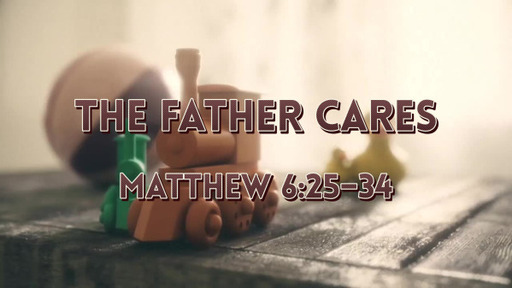The Father Cares

Introduction
In The Effective Father, Gordon MacDonald writes:
It is said of Boswell, the famous biographer of Samuel Johnson, that he often referred to a special day in his childhood when his father took him fishing. The day was fixed in his mind, and he often reflected upon many things his father had taught him in the course of their fishing experience together.
After having heard of that particular excursion so often, it occurred to someone much later to check the journal that Boswell’s father kept and determine what had been said about the fishing trip from the parental perspective. Turning to that date, the reader found only one sentence entered: “Gone fishing today with my son; a day wasted.”
Declaration
1. There is Something More to Life
A. Application v. 25
Planning for tomorrow is time well spent; worrying about tomorrow is time wasted.
B. Explanation v. 25
C. Illustration v. 26-27
2. There is a Someday after Life
A. Illustration v. 28-29
B. Explanation v. 30-32
C. Application v. 33
3. There is a Somehow beyond Life
A. Explanation v. 33
B. Application v. 34
C. Illustration v. 34
Someone has said that the average person is crucifying himself between two thieves: the regrets of yesterday and the worries about tomorrow.
Conclusion
Humans work and worry; birds work but do not worry; and wildflowers neither work nor worry.
